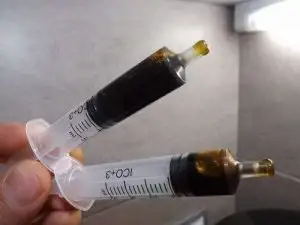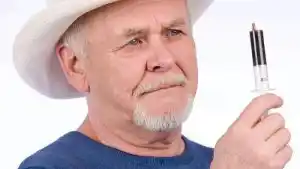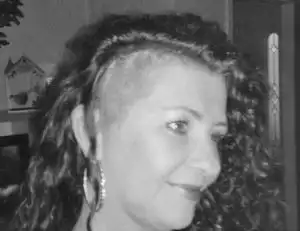
Cannabinoids (Cannabis) for cancer
How can cannabinoids (cannabis) help cancer patients?
Cannabinoids (chemicals in Cannabis) may cause antitumor effects by various mechanisms, including induction of cell death, inhibition of cell growth, and inhibition of tumor angiogenesis invasion and metastasis.
Table of Contents
Cannabis as medicine
The following is published by the US National Cancer Institute
What are cannabinoids?
Cannabinoids, also known as phytocannabinoids, are chemicals in Cannabis that cause drug-like effects in the body, including the central nervous system and the immune system. The main psychoactive cannabinoid in Cannabis is delta-9-THC. Another active cannabinoid is cannabidiol (CBD), which may relieve pain and lower inflammation without causing the high of delta-9-THC. Cannabinoids may help treat the side effects of cancer and cancer treatment.
Antitumor Effects
Cannabinoids may cause antitumor effects by various mechanisms, including induction of cell death, inhibition of cell growth, and inhibition of tumor angiogenesis invasion and metastasis. Two reviews summarize the molecular mechanisms of action of cannabinoids as antitumor agents. Cannabinoids appear to kill tumor cells but do not affect their non-transformed counterparts and may even protect them from cell death.
Cannabinoids may be useful in treating the side effects of cancer and cancer treatment.
Other possible effects of cannabinoids include:
Blocking cell growth.
Preventing the growth of blood vessels that supply tumors.
Potential side-effects include:
- Fast heartbeat.
- Low blood pressure.
- Muscle relaxation.
- Bloodshot eyes.
- Slowed digestion.
- Dizziness.
- Drowsiness.
- Depression.
- Hallucinations.
- Paranoia.
Both Cannabis and cannabinoids may be addictive. Symptoms of withdrawal from cannabinoids include:
- Being easily annoyed or angered.
- Trouble sleeping.
- Unable to stay still.
- Hot flashes.
- Nausea and cramping (rare).
These symptoms are mild compared with symptoms of withdrawal from opiates and usually go away after a few days.
Scientific evidence supporting the use of cannabinoids in the treatment of cancer.
This 2024 study The use of Tetrahydrocannabinol (THC) is associated with an increase in survival time in palliative cancer patients: A retrospective multi-center cohort study looked at the impact of THC on mortality of 9,419 ambulatory palliative patients.
Conclusion: Use of THC is associated with a significant increase in survival time in ambulatory palliative patients which survive longer than 7 days the initiation of THC prescription and which use of THC >4.7 mg/d.
The analysis was done for two cohorts of patients. Cohort 1: all patients with a survival time of at least 7 days after inclusion in specialized ambulatory palliative care (SAPC) and cohort 2: a sub-group of patients with a survival time between 7 and 100 days. A total of 9419 patients with a survival time of at least 7 days after inclusion in SAPC were included in the analysis (cohort 1). 7085 among them had a survival time between 7 and 100 days (cohort 2). In both cohorts, survival time was significantly prolonged by THC, but only when the daily THC dose was above the median of 4.7 mg. Survival time was 15 days longer in cohort 2 (40 vs. 25 days), when more than 4.7 mg THC were prescribed per day.
Study: Nausea, appetite loss, pain, and anxiety are all afflictions of wasting, and all can be mitigated by marijuana.
This study, published in Current Oncology in 2016 states:
For the cancer patient, cannabis has a number of potential benefits, especially in the management of symptoms. Cannabis is useful in combatting anorexia, chemotherapy-induced nausea and vomiting, pain, insomnia, and depression. Cannabis might be less potent than other available antiemetics, but for some patients, it is the only agent that works, and it is the only antiemetic that also increases appetite.
Studies on various cancers are featured further down this page.
Cannabis prevents nausea and vomiting in children undergoing cancer treatment.
A study An efficient new cannabinoid antiemetic in pediatric oncology (Life Sciences, May 1995 ) found:
…the prevention of vomiting was complete, regardless of the antineoplastic protocol followed . We observed no delayed nausea or vomiting. Although the number of pediatric cancer patients treated so far is small, the total number of treatments is considerable (480 times) as most patients underwent several treatment cycles. Without the cannabinoid therapy we would have expected the patients to vomit in most treatments.
In summary, the complete success in preventing vomiting due to antineoplastic treatment in children, and the essential lack of side effects, leads us to believe that delta-8-THC at a dose considerably higher than the doses of delta-9-THC usually administered to adults, can serve as a new, inexpensive antiemetic agent in pediatric cancer chemotherapy.
You can read the full text here
This safe, effective method of preventing nausea and vomiting in children has been known for twenty three years, yet oncologists still prescribe dangerous pharmaceutical drugs instead of delta-9-THC. Why?
Note: Forward to 9:40 for shocking revelation.
For more on Childhood Cancer and Cannabis Oil: See YouTube Videos
Cannabis for Pain
According to the National Cancer Institute, when cancer pain is severe and persistent, it is often resistant to treatment with opioids.Two studies examined the effects of oral delta-9-THC on cancer pain. The first, a double-blind, placebo-controlled study involving ten patients, measured both pain intensity and pain relief. It was reported that 15 mg and 20 mg doses of the cannabinoid delta-9-THC were associated with substantial analgesic effects, with antiemetic effects and appetite stimulation.
In a follow-up, single-dose study involving 36 patients, it was reported that 10 mg doses of delta-9-THC produced analgesic effects during a 7-hour observation period that were comparable to 60 mg doses of codeine, and 20 mg doses of delta-9-THC induced effects equivalent to 120 mg doses of codeine. Higher doses of THC were found to be more sedating than codeine.
This study says: In conclusion, THC:CBD extract, a nonopioid analgesic, endocannabinoid system modulator, has been shown to be a useful adjunctive treatment for relief of pain in patients with advanced cancer who experience inadequate analgesia despite chronic opioid therapy. The reductions in pain scores were neither because of a change in opioid background medications nor because of an increase in use of breakthrough medication. Therefore, we can conclude that the observed reduction in pain scores is attributable to the positive analgesic effects of THC:CBD extract.
This study says: In total, 177 patients with cancer pain, who experienced inadequate analgesia despite chronic opioid dosing, entered a two-week, multicenter, double-blind, randomized, placebo-controlled, parallel-group trial.
In conclusion, our data indicate that cannabidiol, and possibly Cannabis extracts enriched in this natural cannabinoid, represent a promising non-psychoactive antineoplastic strategy. In particular, for a highly malignant human breast carcinoma cell line, we have shown here that cannabidiol and a cannabidiol-rich extract counteract cell growth both in vivo and in vitro as well as tumor metastasis in vivo.
This study says: In conclusion, THC:CBD extract, a nonopioid analgesic, endocannabinoid system modulator, has been shown to be a useful adjunctive treatment for relief of pain in patients with advanced cancer who experience inadequate analgesia despite chronic opioid therapy. The reductions in pain scores were neither because of a change in opioid background medications nor because of an increase in use of breakthrough medication. Therefore, we can conclude that the observed reduction in pain scores is attributable to the positive analgesic effects of THC:CBD extract.
This Review Article A selective review of medical cannabis in cancer pain management says: Overall, four out of the five studies found that cannabis was significantly associated with a decrease in cancer-associated pain.
Caution: Before having surgery, all cannabis use, including CBD and medical cannabis, should be disclosed to the surgeon or anaesthesiologist.
Marijuana is an herb and a flower. God put it here. If He put it here and He wants it to grow, what gives the government the right to say that God is wrong?
Willie Nelson
Rick Simpson Oil for cancer

Rick Simpson Oil and Cancer
RSO is a concentrated form of cannabis oil known to have medical benefits, particularly for cancer. RSO differs from a lot of other cannabis oils because it contains higher levels of THC.
A complete course of RSO to treat cancer is 60 grams and then 1-2 grams/month maintenance dose.
The supplement piperine has been shown to increase the bioavailability of cannabinoids over 200%.
Other therapeutic cannabis oils tend to contain a cannabinoid called cannabidiol (CBD) and little or no THC.
You can find full information about RSO on Rick Simpson’s website.
Treatment side effects
With medicinal cannabis oil, you may experience drowsiness, unsteadiness, paranoia, anxiety, depression, hallucinations and poor concentration, in addition to getting high. Some of these effects only last for hours and all of them tend to go away in less than a month as you develop tolerance to the oil.
Cannabis should not be taken alongside Immune Checkpoint Inhibitors.
Anecdotal evidence – patient testimonials
Rick Simpson

In 2003, he discovered three suspicious spots on his face and neck and was diagnosed with basal cell carcinoma skin cancer. He says the doctors had given up on him because he had more than one unsuccessful operation on the three pigmented lesions on the skin of his face. As soon as these were removed, they would reappear even more infected! Rick’s decision was to apply cannabis oil to his skin cancer. He applied his cannabis oil to some bandages and put them on the skin cancer. After 4 days of waiting he decided it was time to see if anything had happened under the bandages. To Ricks surprise the cancer was gone. His cannabis oil had cured his cancer. He went on to educate the world about the benefits of cannabis oil and actually gave away oil to those who were ill – until the Canadian authorities stopped him doing so.
In 2008, filmmaker Christian Laurette released the first free documentary on YouTube sharing Rick’s story titled “Run From the Cure”.
How Cannabis Oil Helped Cure This Young Girl’s Leukemia
Source: Spiritscience
7-year-old Mykayla Comstock was diagnosed with intermediate risk T-Cell acute lymphoblastic leukemia in the summer of 2012. Her mother, Erin Purchase, wasted no time and enrolled her daughter in the Oregon Medical Marijuana Program.
Much to everyone’s surprise, just one week after beginning the cannabis oil therapy, scans of Mykayla’s bone marrow and blood showed no signs of leukemia. She was in remission!
Mykayla’s mother Erin posted the following on Mykayla’s Facebook page:

September is childhood cancer awareness month. I definitely agree that these children need a cure, but I don’t believe the researchers are looking at all the options that are out there.
Cannabis provided my daughter a quality of life that other children fighting leukemia without cannabis do not get. She never took a pain killer, she never lost a single pound, and she only used a handful of anti-nausea meds. She wasn’t anxiety ridden, she had a smile on her face, and she wasn’t in a wheelchair like so many of the kids that take chemotherapy.
Mykayla was ordered to have brain radiation, as her leukemia had spread into her brain. We said no, replacing it with cannabis oil in combination with other holistic herbs, vitamins, and a plant based diet.
Mykayla’s Facebook page
David Triplett
David Triplett had skin cancer on his nose that was treated and then came back. His doctor recommended chemotherapy cream, but he decided to give cannabis oil a try and record what happened. The pictures he took over the course of his treatment show small dark spots on his nose growing and then disappearing.
He recorded his journey in a short documentary called Cured: A Cancer Story.
Incurable brain tumour claims cannabis oil ‘saved her life’

A cancer patient who was given just months to live made an incredible recovery, which she credits to using cannabis oil, according to independent.co.uk
Lynn Cameron was given 6 to 18 months to live after being diagnosed with an incurable brain tumour in December 2013.
But, despite several sessions of chemotherapy and radiotherapy, scans were showing no change to the mass so she opted to try cannabis oil in a desperate bid to save her life.
“Each scan I received after that was showing an improvement. I had been told that chemotherapy and radiotherapy doesn’t make much difference, so I knew it must be the cannabis doing it.
“By the sixth MRI, the cancer had gone.”
A doctor’s view
The following excerpts are from an article published in US News
Medical Marijuana Is Safe for Children
Numerous cases show clinical cannabis is an effective treatment for illnesses in children.
By William Courtney, M.D., Contributor
Medical Marijuana Is Safe for Children
The courage and fortitude of parents who have chosen cannabis compounds to treat their children facing life-threatening illness have raised eyebrows. Some live in terror that their government will take their child away, since medical marijuana is only legal in some states. However, there are numerous cases demonstrating the benefits of clinical cannabis, which happen to threaten a very profitable healthcare industry that relies on conventional drugs, as well as political agendas.
The cannabinoid acids in cannabis have been found to have anti-proliferative, anti-neoplastic, anti-inflammatory, anti-epileptic, anti-ischemic, anti-diabetic, anti-psychotic, anti-nausea, anti-spasmodic, antibiotic, anti-anxiety, and anti-depressant functions. The anti-neoplastic action of cannabis—inhibiting development of malignant cells—was recognized in the 1970s and patented by the U.S. Department of Health and Human Services in 2003.
Out of 7,000 patients, my youngest, an 8-month-old, was diagnosed with a massive midbrain tumor. Pediatric oncologists recommended chemotherapy and radiation. Instead, the parents applied a cannabinoid concentrate to their son’s pacifier twice a day, which resulted in a significant reduction in the size of the tumor in 30 days. The response prevented a million-dollar chemo-radiation hospitalization. The child’s oncologist calls the infant a ‘miracle baby,’ but most medical experts would discount the case as anecdotal, unacceptable in a peer-reviewed journal. But the real peers are other parents reluctant to consent to the devastation of surgery, chemotherapy, and radiation—not those benefiting from the $2.6 trillion healthcare industry.
A 2-year-old spent a year in a pediatric oncology ward, endured 39 hours of brain surgery, received chemotherapy, a bone marrow transplant, and radiation under general anesthesia for 42 days, only to be discharged home on hospice and morphine. The child’s local pediatrician started to treat her with juiced raw cannabis leaf. Two years later, she is still alive, now free of cancer and scar tissue.
Several years ago, I proposed that cannabis be recognized as an essential nutrient in the diet of individuals in their 30s and older. Children were excluded out of fear of backlash but it is now my incontrovertible opinion that the immune system of the 8-month-old would never have allowed the tumor to gain a foothold if supported with dietary cannabis, or Vitamin F.
Read the full story
See Dr Courtney’s website cannabisinternational.org
See the latest studies and news at Granny Storm Crows List
You can find more studies on PubMed
I use use cannabis a lot in my cancer population, with very positive results.
Mark S. Wallace, MD, professor of clinical anaesthesiology at the University of California, San Diego
Here are links to other studies (published on Higher Perspective)
Page updated 2024



